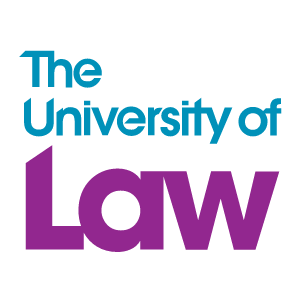
About The University of Law
The University of Law is one of the longest-established providers of legal education and training in the United Kingdom and also the largest law school in the UK.
ULaw has sixteen campuses in the UK: Birmingham, Bristol, Chester, Guildford, Leeds, London (Bloomsbury and Moorgate), Manchester, Nottingham, Newcastle, Norwich, Exeter, Reading, Liverpool, Sheffield and Southampton, as well as an international branch in Hong Kong and Berlin.
The University of Law offers Bachelor, Master programmes and professional training courses such as the Legal Practice Course (LPC), Bar Practice Course (BPC) and Solicitor’s Qualifying Examination (SQE) courses. These can be studied on campus or online.
Ratings and honors
In June 2021 university was awarded 5 stars in the World University Rankings, by global higher education analysts, QS (Quacquarelli Symonds). According to QS standards a typical five-star institution is “generally world-class in a broad range of areas, enjoys an excellent reputation and has cutting-edge facilities and internationally renowned research and teaching faculty.”
On the top of achieving an overall 5 Star rating as an institution and for the Law subject, ULaw has achieved 5 stars in Teaching, Employability, Online Learning, Academic Development and Inclusiveness and 4 stars for Specialist Criteria for LLB and Internationalisation.
The University of Law does not feature in the Academic Ranking of World Universities or Times Higher Education university rankings, as these rankings exclude small and specialist institutions.
What distinguishes ULaw
- The guiding principle of The University of Law is that future lawyers and business leaders should learn in a realistic, professional and contemporary context, with plenty of practical interactive engagement. This is why teaching groups are small and exposed to frequent contact hours.
- An alumni network of over 80,000 across 103 countries, allows building strong network, staying connected, offering mentoring opportunities, remaining informed and taking advantage of a wealth of specially negotiated privileges and discounts.
- Network connections to 11,800 legal and business industries and organizations worldwide, allow tapping into an incredible pool of alumni talent. as well as employment opportunities.
Academic model
In order to optimise the delivery of academic courses with the adoption of digital technologies, ULaw introduced a new model looking through five pillars: Teaching Excellence, Data, Design, Assessment and Student Experience.
These will be underpinned by four themes: Inclusivity, Distinctiveness, Sustainability and Impact.
The learning, teaching and assessment are within a hybridised model, deploying more incredible digital technologies to offer tomorrow’s students an outstanding and distinguishable learning pathway.
The most popular programmes offered by the University of Law.

- University of Law, England
- Online
- 9500 £
- New registration dates to be announced soon

- University of Law, England
- Online
- 9500 £
- New registration dates to be announced soon

- University of Law, England
- Online
- 9500 £
- New registration dates to be announced soon

- University of Law, England
- Online
- 9500 £
- New registration dates to be announced soon

- University of Law, England
- Online
- 9500 £
- New registration dates to be announced soon

- University of Law, England
- Online
- 9500 £
- New registration dates to be announced soon

- University of Law, England
- Online
- 9500 £
- New registration dates to be announced soon

- University of Law, England
- Online
- 9500 £
- New registration dates to be announced soon

- University of Law, England
- Online
- 9500 £
- New registration dates to be announced soon

- University of Law, England
- Online
- 9500 £
- New registration dates to be announced soon

- University of Law, England
- Online
- 9500 £
- New registration dates to be announced soon

- University of Law, England
- Online
- 9500 £
- New registration dates to be announced soon

- University of Law, England
- Online
- 9500 £
- New registration dates to be announced soon

- University of Law, England
- Online
- 9500 £
- New registration dates to be announced soon

- University of Law, England
- Online
- 9500 £
- New registration dates to be announced soon

- University of Law, England
- Online
- 9500 £
- New registration dates to be announced soon

- University of Law, England
- Online
- 9500 £
- New registration dates to be announced soon

- University of Law, England
- Campus
- 14150 £ online and full time mode cost starts from
- New registration dates to be announced soon

- University of Law, England
- Online
- 9500 £
- New registration dates to be announced soon

- University of Law, England
- Campus
- 12700 £ part-time cost starts from
- 12700 £ full time cost starts from
- New registration dates to be announced soon

- University of Law, England
- Online
- 9500 £
- New registration dates to be announced soon

- University of Law, England
- Online
- 9500 £
- New registration dates to be announced soon

- University of Law, England
- Online
- 9500 £
- New registration dates to be announced soon

- University of Law, England
- Online
- 9500 £
- New registration dates to be announced soon

- University of Law, England
- Online
- 9500 £
- New registration dates to be announced soon
